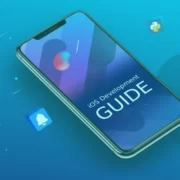The world of programming is constantly evolving, and it’s crucial for programmers to stay updated with the essential concepts and principles. Whether you’re a beginner or an experienced developer, understanding programming languages, problem solving, data structures, debugging, version control, and more are fundamental for success in the field of programming. In this blog post, we’ll delve into the 10 essential things you must know about programming to become a proficient programmer. From foundational concepts to best practices, we’ll cover the key aspects of programming that every developer should be aware of.
Programming Languages: Understanding the Foundation
Programming Languages: Understanding different programming languages is fundamental to programming. There are numerous programming languages such as Python, JavaScript, C++, and many more, each with its own syntax, rules, and use cases. It’s important to understand the basics of programming languages and choose the ones that align with your goals and projects.
Problem-Solving: The Core of Programming
Problem Solving: Programming is essentially about solving problems. As a programmer, you need to have excellent problem-solving skills to analyze and tackle complex problems effectively. This involves breaking down problems into smaller, manageable tasks, identifying patterns, and designing efficient solutions.
Read: The Top 10 Free Programming Tutorial Websites
Data Structures and Algorithms: Building Blocks of Code
Data Structures and Algorithms: Data structures and algorithms are the foundation of programming. Understanding data structures such as arrays, linked lists, stacks, and queues, and knowing how to implement and use them is crucial. Additionally, knowing different algorithms such as sorting, searching, and graph algorithms, and when to use them can significantly impact the efficiency and performance of your code.
Debugging and Testing: Essential for Reliable Software
Debugging and Testing: Bugs are inevitable in programming, and learning how to debug and test your code is essential. Being able to identify and fix errors in your code is crucial for writing robust and reliable software. Familiarize yourself with debugging tools and techniques to troubleshoot and resolve issues effectively.
Version Control: Collaborative Development Made Easy
Version Control: Version control is essential for collaborative software development. Understanding how version control systems such as Git work, and knowing how to create, manage, and merge branches, and resolve conflicts is vital for working in a team or contributing to open-source projects.
Also Read: Top 10 Coding Secrets to Simplify Your Programming Journey
Software Development Life Cycle: Managing Projects Effectively
Software Development Life Cycle: Understanding the software development life cycle (SDLC) is crucial for managing software projects effectively. Familiarize yourself with the different stages of SDLC, including planning, designing, coding, testing, and deployment, and learn how to follow best practices for each stage.
Object-Oriented Programming (OOP): Modular and Scalable Code
Object-Oriented Programming (OOP): OOP is a popular programming paradigm that involves organizing code into objects or classes. Understanding the principles of OOP, such as encapsulation, inheritance, and polymorphism, is crucial for writing modular, maintainable, and scalable code.
Performance Optimization: Writing Efficient Software
Performance Optimization: Writing efficient code is important for optimizing the performance of your software. Understanding concepts such as time complexity, space complexity, and algorithmic optimization techniques can help you write faster and more efficient code.
Documentation: Communicating Your Code
Documentation: Writing clear and concise documentation is crucial for communicating and sharing your code with others. Learn how to document your code effectively using comments, docstrings, and other documentation tools. Proper documentation makes it easier for others (and yourself) to understand and maintain your code.
Continuous Learning: Staying Relevant in a Dynamic Field
Continuous Learning: Programming is a constantly evolving field, and it’s important to keep learning and staying up-to-date with the latest trends and technologies. Stay curious and continue to learn new programming languages, frameworks, and tools to improve your skills and stay relevant in the ever-changing world of programming.
Read More: 5 Tips For Improving Your Coding Abilities
Conclusion
Programming is a dynamic field that requires continuous learning and improvement. By understanding and mastering the essential aspects of programming, such as programming languages, problem solving, data structures, debugging, version control, and more, you can enhance your coding skills and become a successful programmer. Stay curious, keep learning, and embrace a growth mindset to stay relevant in the ever-changing world of programming.
Happy coding!
Sharing is Caring, don’t forget to share POST with your friends














[…] Also Read: Crucial Programming Know-How: 10 Essential Concepts You Must Master […]
[…] Also Read: Crucial Programming Know-How: 10 Essential Concepts You Must Master […]